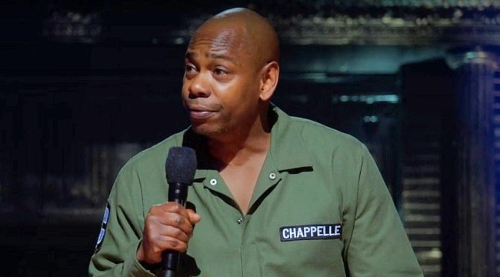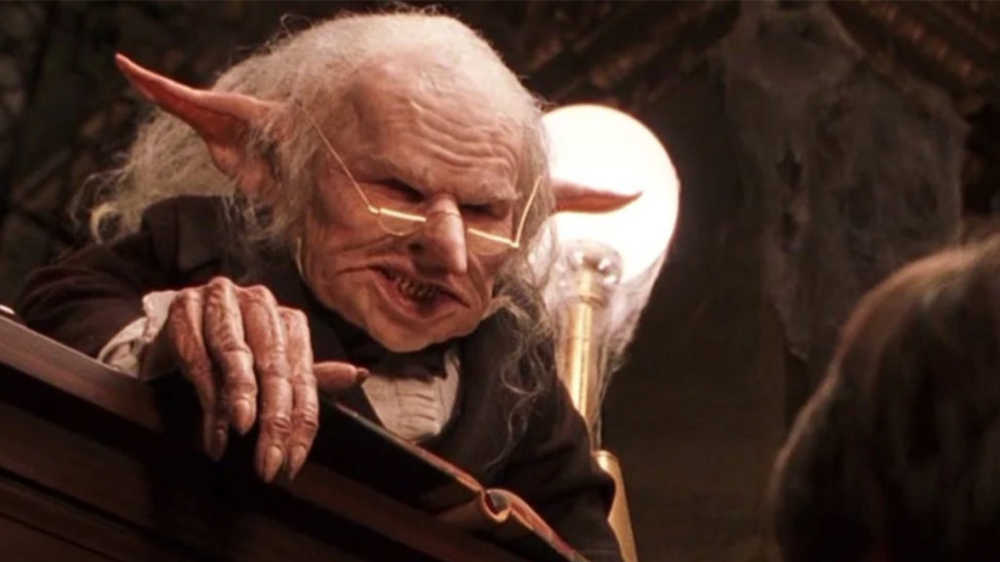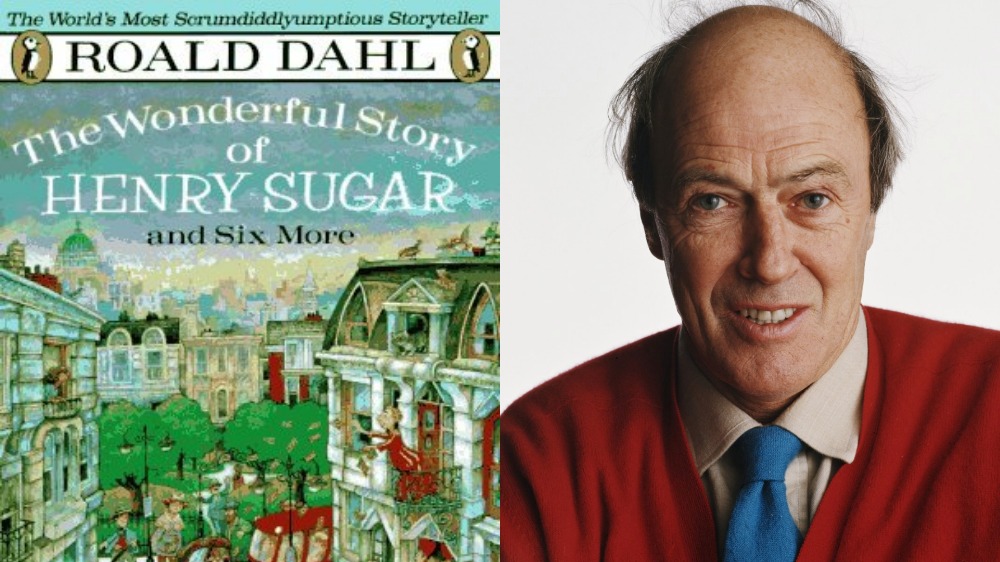It was announced last week that Wes Anderson is tackling another Roald Dahl book for his next film, following his adaptation of Fantastic Mr. Fox. Before I get into why this is a problem, allow me a brief word about “cancel culture.”
I’ve mentioned it a bit in this space previously, but I think it bears repeating. I believe that the term “cancel culture” is often misappropriated by people who have said or done things that have gotten them into trouble for one reason or another. When they are then called out for it, they scream “cancel culture!” and try to change the narrative by playing the victim.
What it comes down to is that people don’t understand how free speech works. They think it means you should be able to say and do whatever you want, and not have to pay the consequences. Because that, ultimately, is what this is about — consequences.
J.K. Rowling says that trans women are not “real” women, there is an uproar, and she claims that she has been canceled. Except that she’s a billionaire who continues to have a massive platform to say and do whatever she likes. She continues to be heard and read by millions of people, so… where is the cancelation, exactly? Because people call her insensitive? Because some think she’s a bigot? Because the young actors who became rich and famous playing the characters she created don’t want to be associated with her comments?

The same can be said for Dave Chappelle and his insensitivity regarding the same group of people. Has he lost his deal with Netflix because of his trans views? No, he hasn’t. On the contrary, the streaming giant has repeatedly defended him. Has he lost any money because of his comments? Not to my knowledge. Nor has he lost any real stature or his own considerable platform? Of course not, and in fact, a long list of comedians and other artists have lined up to defend him and speak on his behalf. And yet, he, too, cries “Canceled!”
To quote the great Vizzini, you keep using that word and I do not think it means what you think it means.
Which brings me to Dahl. Yes, he’s been dead for over three decades, but his work continues to be widely read and consumed, the movies based on his work watched and beloved by millions. My wife, for one, counts Willy Wonka and the Chocolate Factory as her all-time favorite film. We just saw it together a few months ago. It was wonderful. As much fun now as it was when it came out 50 years ago, even if I found myself terribly conflicted watching it.
As mentioned above, Anderson is adapting one of Dahl’s lesser-known books, The Wonderful Story of Henry Sugar. Benedict Cumberbatch, Ben Kinglsey, Ralph Fiennes and Dev Patel are among the actors who have been cast in the film, and that’s an impressive list that garnered much press in the Hollywood trades. After all, Anderson is a critical darling who might get another Oscar nomination soon for The French Dispatch (he has been nominated seven times before).
But you know what I didn’t see in any of the stories? That Roald Dahl was a vicious, vitriolic, and vituperative antisemite. Hence my conflict watching Willy Wonka.
This is not news, not to anyone paying attention. Dahl was not terribly shy about voicing his hatred for Jews when he was alive. His antisemitism was the classic kind, wherein he would employ Jewish caricatures in his work, and talk openly about Jewish bankers, the influence of Jewish money, and how Jews’ behavior tended to justify the horrific treatment they have received over time.
Just so there’s no question, this is an actual quote from the author: “Even a stinker like Hitler didn’t just pick on them for no reason.”
And yet, Hollywood keeps coming back to Dahl. Netflix paid his estate at least a billion dollars (!) in 2018 for the rights to 16 of his books. Anderson, by all accounts a lovely and sensitive fellow, signs on to make one of Dahl’s lesser-known works, and people celebrate.
But where’s the outrage? Why does no one say a word about this? I’ll tell you why — because Hollywood has an antisemitism problem.
Rather, I should say, Hollywood has a problem recognizing antisemites. It’s more of a case of Ostrich Syndrome, where executives and producers bury their heads in the sand and pretend there’s no problem at all. It’s why Mel Gibson continues to work and was even rewarded with a Best Director Oscar nomination for Hacksaw Ridge five years ago, and it’s why no one talks about Roald Dahl’s legacy when someone as respected as Wes Anderson decides he wants to adapt one of the author’s works.
The thing about antisemitism is that it’s the only socially acceptable form of racism left for people. Yes, I know that there is no actual acceptable form of racism, but if you say something racist about pretty much any ethnicity besides Jews, you’re going to get into trouble. Doubt it? Penguin Random House recently decided not to publish a collection of Norman Mailer’s political writings to celebrate the centennial of his birth next year. Why did they abort these plans? Because a junior staffer reportedly objected to the title of The White Negro, Mailer’s 1957 essay about hipster existentialism.
If you talk about Jews, though, you can tend to get away with anything, especially if you blame it on Israel. Antisemitism is so baked into our culture and our society, we often don’t even notice the dog whistle statements or the use of problematic imagery, or the casual way that hurtful comments are dismissed as “jokes” and their targets deemed “too sensitive.” You can also marginalize Jews, as the brand new Academy Museum of Motion Pictures was recently accused of doing, by barely mentioning, if not outright ignoring the Jewish men who started the movie business in the first place.
Meanwhile, Israel is turned into a convenient villain and scapegoat for every occasion when it comes to vilifying Jews, even when the comments or behavior in question have nothing to do with that country. Of course, this doesn’t stop people from trying to utilize Israel as a reasonable excuse for their behavior, even though it’s not, and instead only confirms their bias.

A perfect example of the antisemitic imagery in question comes, again, from Rowling. There was a minor controversy last week when Jon Stewart pointed out that the bankers in the Harry Potter series are obvious Jewish caricatures. He then walked this back and said he doesn’t think Rowling is an antisemite. For what it’s worth, I think he’s right about both things. I don’t think Rowling is an antisemite, but I do think those characters are pretty obviously based on negative Jewish stereotypes. The thing is, those depictions have become so endemic to our culture, I would wager she did it without even thinking about it.
The one exception to all this seems to be any discussion of the Holocaust, which is why Gina Carano was fired by Disney from her role on The Mandalorian. She compared being a political conservative in today’s America to being a Jew in 1930s Germany. When she was (deservedly) fired, she cried “canceled!” But what really happened is that she was canned for saying something stupid, and then doubling down on it.
But even that, astonishingly, isn’t a given for cancelation. Ken Loach is no Hollywood darling, but he is an influential British filmmaker who is on the vanguard of both the independent film and cinema verité movements. Lionized by respected filmmakers across the globe, he is counted as a mentor and a major influence to plenty of folks who very much are Hollywood players. Two-time Oscar-winning cinematographer Roger Deakins, for one, regularly talks about his reverence for Loach’s work on the otherwise delightful and informative podcast he has with his wife, James.
All that would be fine, if not for the fact that Loach is a rabid Jew-hater who repeatedly refuses to condemn Holocaust denial. This occasionally gets mentioned in stories about Loach, or when he gives an interview and says nasty things about Jews and Israel, but then it quickly vanishes like gossamer and people go back to talking about his influence as a filmmaker, and when we’ll see more work from the maestro.
Why is this? Why does Hollywood, an industry that has so many Jews in positions of power, allow this? Honestly, I think there are a couple of reasons. One is the typical Jewish reaction of not wanting to make waves, and thinking that if we just keep our heads down and our mouths shut, people will leave us alone and not come after us, as they have over and over and over again through the millennia. This, despite countless exiles, purges, slaughters, pogroms, an Inquisition, and a Holocaust, among other things, that continually demonstrate how ineffective this strategy tends to be.
Another is the sense of shame and self-loathing so many Jews possess. This is a pretty loaded statement, I know, but that doesn’t make it false. We Jews are increasingly so conflicted about our religion, our culture, and our place in society, we often look the other way at the reprehensible way we’re treated and spoken of because we think we somehow deserve it. Or, even more perversely, we are so committed to being able to have our own voices heard, we refuse to confront any other voices, even those who would seek to harm, betray, slander, or otherwise destroy us.
So we’re clear, I am not one of those Jews who believes for a second that we have earned any of the scorn we receive. I’m one of the Jews who speaks up about it and tells people to kiss my tuchus, and that I will stand up and face your hate without fear, and with plenty of my own anger. But I can also talk about the situation, call it out, explain why it exists, and why it has to change.
And it does have to change. Hollywood needs to start taking a stand. Antisemitism and Jewish-related hate crimes are on the rise across the globe, and we’re not doing nearly enough to stop it. On the contrary, we as an industry continue to mostly ignore it, hoping it goes away.
Spoiler alert: It won’t. It’s always been here and isn’t going to end unless we do something about it. We have to name it, call attention to it, and stop ducking it, because if we don’t, no one else is going to. And it’s going to get worse. Hopefully, the Hollywood press will confront Anderson about Dahl’s disturbing worldview when it comes time for the director to do interviews for The Wonderful Story of Henry Sugar because I’m genuinely curious what he has to say about it and if he’ll even dare to voice an opinion.
 Neil Turitz is a journalist, essayist, author, and filmmaker who has worked in and written about Hollywood for nearly 25 years, though he has never lived there. These days, he splits his time between New York City and the Berkshires. He’s not on Twitter, but you can find him on Instagram @6wordreviews.
Neil Turitz is a journalist, essayist, author, and filmmaker who has worked in and written about Hollywood for nearly 25 years, though he has never lived there. These days, he splits his time between New York City and the Berkshires. He’s not on Twitter, but you can find him on Instagram @6wordreviews.
You can read a new installation of The Accidental Turitz every Wednesday, and all previous columns can be found here.







